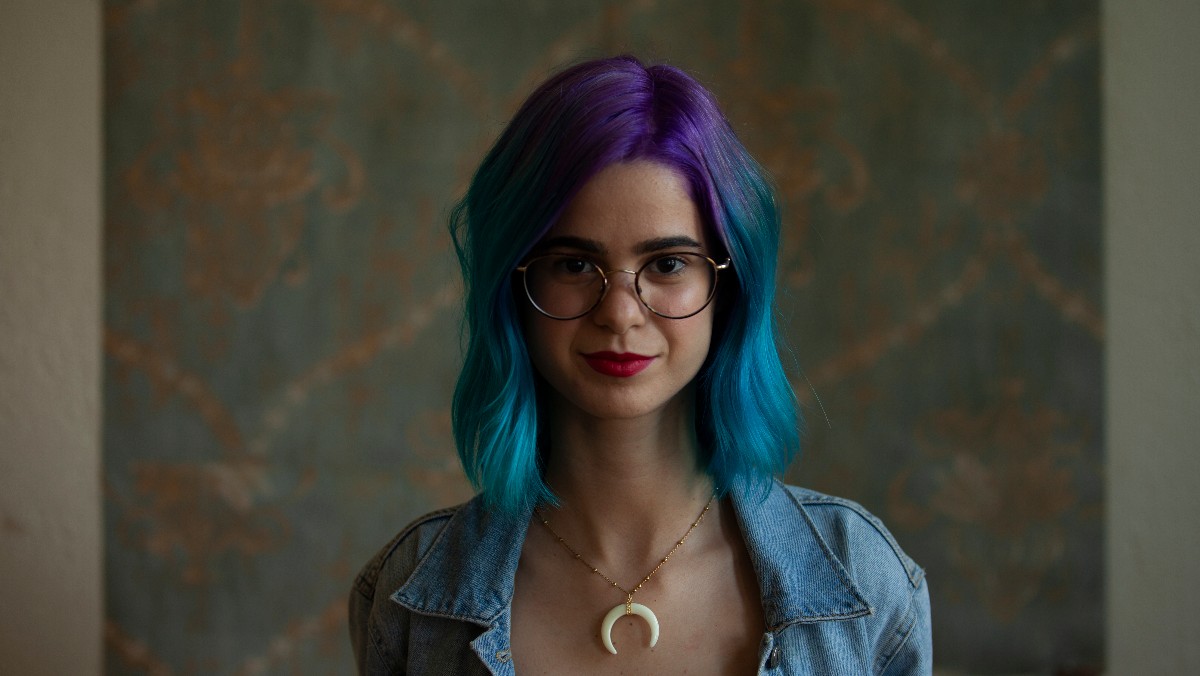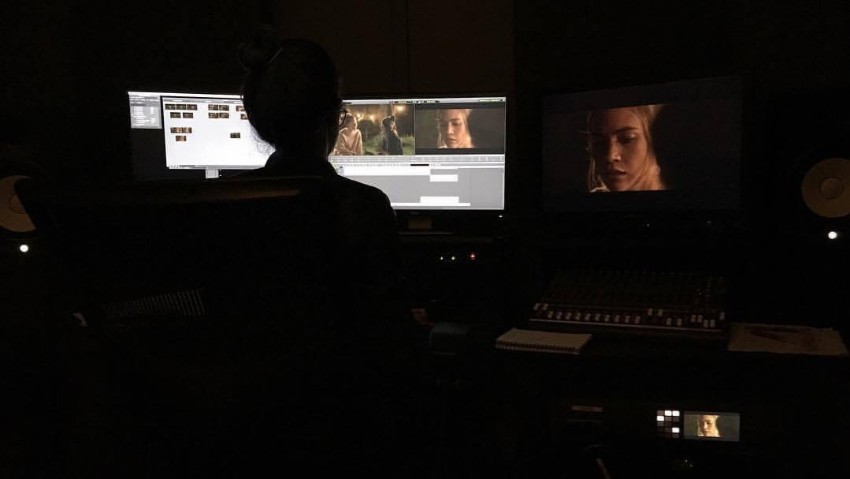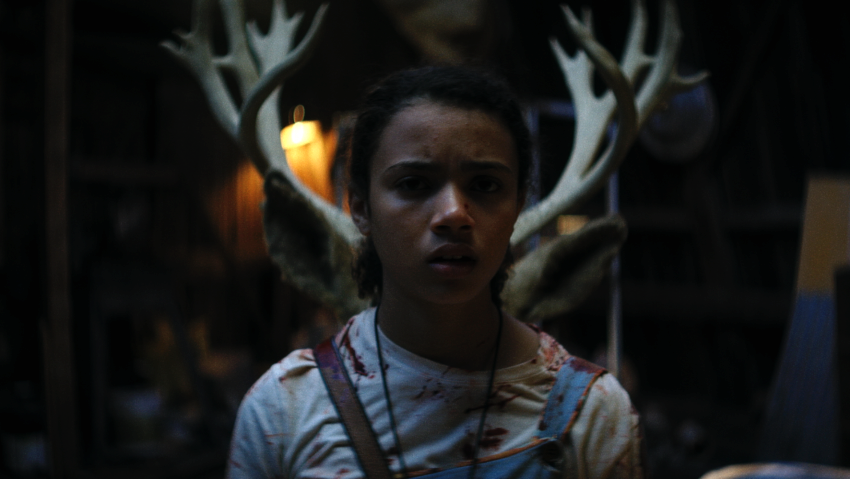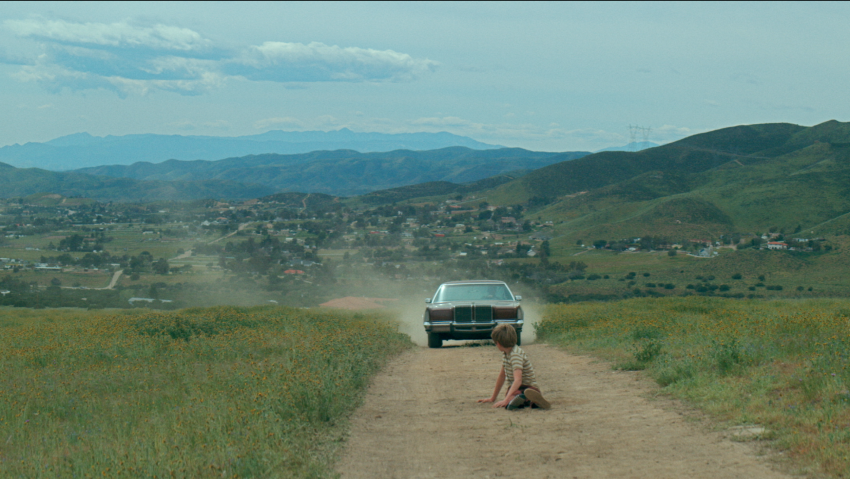
Maria Freire is a Brazilian Film Editor based in Los Angeles. Maria who recently graduated from American Film Institute Conservatory (the top film school in the US) currently holds an MFA in Film Editing. During her time in LA, she has worked on multiple awarding-winning films (shorts). One example is Louise (short film) which was an Official Selection at the Latino Media Fest (NALIP’s) the Biggest Lantix film festival in the United States, and part of AFI Fest‘s Showcase. Another is A Strange Calm which was an Official Selection of Sitges International Film Festival, an Academy Award qualifying film festival, and Fantasia International Film Festival, a Canadian Screen Awards qualifying film festival. Maria has been very fortunate to have her work selected at festivals around the globe, in countries such as Brazil, the UK, Spain, Germany, Israel, and Tokyo.
indieactivity: Briefly introduce your path to editing?
Maria Freire (MF): It was not a straightforward path. At first, I wanted to be a director, thinking that is the most creative part of filmmaking. So, for 3 years I worked as an AD on TV shows back in Rio de Janeiro. I was first introduced to post-production when I got the opportunity to be a logger. I worked will with the editor on that project and I then started learning more about editing. I realized the creative beauty and the sense of responsibility you get from having to piece the film together. I started working as an editor on student films and then decided that the best decision for my career would be to apply for the MFA in Editing at the American Film Institute Conservatory. It has been 3 years since I’ve been in LA and have worked on award-winning short films, reality TV, documentaries, and narrative feature films. I have had many great experiences so far.

Your work is critical in the making of a film! Tell us more about it.
Maria Freire (MF): To explain editing in the simplest way would be to compare it to a puzzle. You get the pieces (scenes) all scrambled, and you need to put them together to create the final picture. Now imagine that amplified by 100. The editor needs to have great attention to detail when choosing the best performance and keeping in mind the overall tone of the film. It also requires patience, because you have to watch a lot of footage until you are able to polish the film into its final form. It also demands good communication/collaboration skills, because for you to be able to focus on the creative choices you need to make, you have to make sure your team and collaborators are all onboard with the same creative views.
Describe your work as an editor on short films?
MF: Short films usually have a smaller budget and a tighter schedule. There’s a lot more pressure to make it to the finish line. For an editor, it’s all about problem-solving. You have to deal with the difficulties of limited access to resources and having to do things on your own. I am usually my own assistant editor, which can be stressful. Since there is usually small to no pay, it definitely feels like I’m doing it more for my love of the craft and specific project than anything else. It’s a hard process, but very rewarding.
What about the independent filmmaking business do you struggle with?
MF: A lot of times, on short films especially, post-production is almost an afterthought to some filmmakers, even though they still expect excellence from my end. The lack of planning only makes my work harder and it affects the edit because I end up having to solve problems beyond the creative process. If I could give advice to directors and producers, I would tell them to allocate money for post-production, so you can guarantee a better quality for your finished film. You might think that your shoot is the core of the film, but that will only take you 5 days, whereas a post will take at least 3 months of hard work from multiple artists. That will influence the quality of the film and increase its chances of getting into film festivals.

Where do you think your strengths lie as an editor?
MF: I did theatre when I was in high school, so performance is very important for me when I’m cutting a scene. I take into consideration lines, intentions, emotions. I also like to have a close relationship with the screenwriter and director, so I can make sure we are doing what is best for the story. Good communication is key to great collaboration. Overall, no matter the difficulties I face, I focus on my work and find ways to learn from my experiences.
Do you always have to work with a crew? Or do you go solo?
MF: I have worked solo before, however, I prefer working with a team. It is very important to delegate responsibilities to the appropriate professionals. I find it necessary to have an assistant editor who works closely with me throughout the whole process. It’s hard to ask an editor to be able to worry about these things as they try to focus on the cut. As for color and sound, I have little knowledge of the craft, so I’ve always worked with post-production houses to achieve the final look and sound of the film. In the end, it’s all about trusting your collaborators to do their jobs with as much passion as you.
Where do you jump in during most filmmaking pipeline?
MF: I usually ask to be involved during pre-production. It’s very important for the editor to be a part of conversations such as story, tone, schedule, shot list, etc. I also request meetings specifically for post-production, that way I can make sure the director and producer are thinking about the post-production process as they prepare for their shoot. Even with those meetings, things don’t always happen like we want them to. So, as an editor, I need to help them oversee certain scenarios to avoid problems I might find later on.

What was your first project after AFI Conservatory?
MF: I had the incredible opportunity to work on Jumanji: The Next Level. This was my first experience on a big-budget film and the team was more than willing to guide me through the process. I met great mentors and friends who taught me so much about editing. Being able to watch their creative process was one of the most rewarding experiences.
Tell us about what do you think editors, as independent filmmakers, need in today’s world of filmmaking?
MF: I think, more than anything, editors need to stand their grounds on their creative beliefs. The filmmaking world has become more competitive and at times you might find yourself questioning your decisions. Believe in your potential and remember that your voice is as important as anyone else’s. Avoid working with filmmakers who are not willing to collaborate. Establish trust with your team and it’ll be easier to get your ideas out there. If you are working with a group you connect with, then you’ll have more space to express yourself creatively.
What are your future goals?
MF: I hope to continue editing meaningful stories that people can connect with emotionally. I want to be just like Anne V. Coates, working until I’m 90 years old, not because I have to, but because I love what I do.
Tell us what you think of the interview with Maria Freire. What do you think of it? What ideas did you get? Do you have any suggestions? Or did it help you? Let’s have your comments below and/or on Facebook or Instagram! Or join me on Twitter.
Follow Maria Freire on Social Media
IMDb
Richard Green Documentary, ‘I Know Catherine, The Log Lady’: Premiere in NYC, LA May 9th
Lynchian Doc I Know Catherine, The Log Lady Makes Hollywood Premiere 4/17, Rollout to Follow
In Camera by Naqqash Khlalid Launch on VOD April 29
Naqqash Khlalid’s Directs Nabhan Rizwan. In Camera stars an EE BAFTA Rising Star Award Nominee.
2025 Philip K. Dick Sci-Fi Film Festival Award Winners Announced
Vanessa Ly’s Memories of the Future Awarded Best PKD Feature
Dreaming of You by Jack McCafferty Debuts VOD & DVD for April Release
Freestyle Acquires “Dreaming of You” for April 15th Release
Hello Stranger by Paul Raschid set for London Games Festival & BIFFF
The film Is set for an April 10th Premiere at The Genesis Cinema in London (LGF) and BIFFF
Daydreamers Official Trailer by Timothy Linh Bui: Released by Dark Star Pictures
Daydreamers Vietnamese Vampire Thriller – May 2nd release









